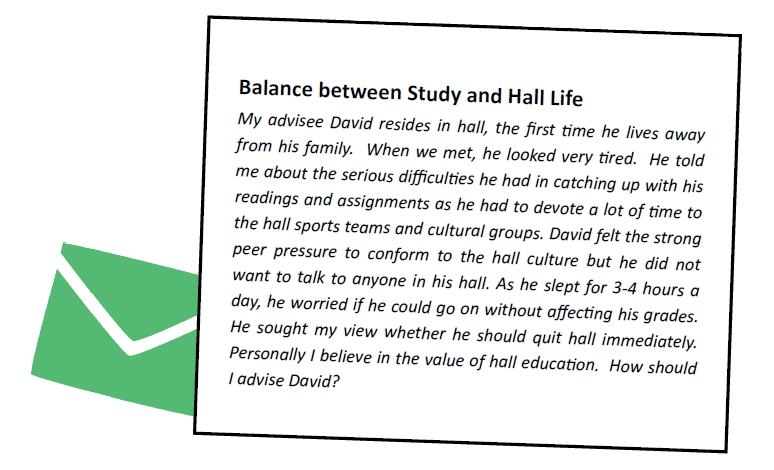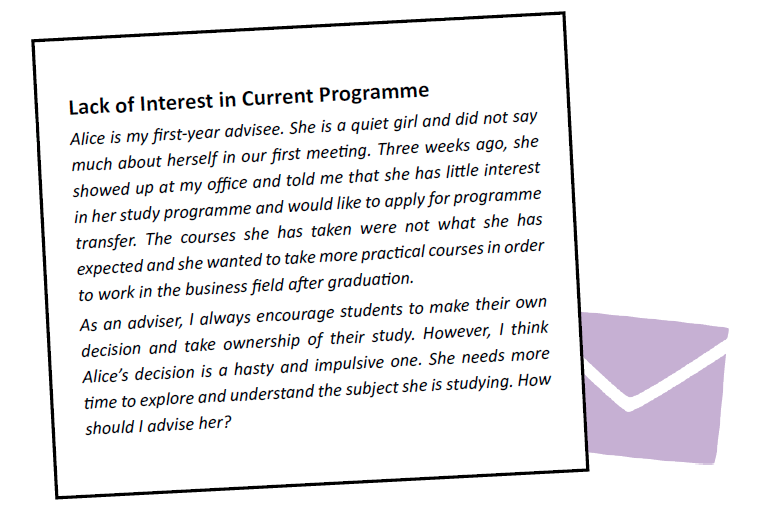Balance between Study and Hall Life
![]() From time to time, AASO receives questions related to student advising from FAAs. In each issue of our newsletter, we will select some cases for sharing possible approaches to guide advisees in resolving issues and attaining growth. If you have any questions or cases to share, please send them to advisingcorner@hku.hk.
From time to time, AASO receives questions related to student advising from FAAs. In each issue of our newsletter, we will select some cases for sharing possible approaches to guide advisees in resolving issues and attaining growth. If you have any questions or cases to share, please send them to advisingcorner@hku.hk.


AASO suggests
What David experienced is not uncommon among students who live in halls, though the degree of pressure varies depending on the attitude and personality of the individual. As there must be a reason why he chose to live in a hall, before he quits, he should talk to his hall tutor about his problem to explore possible solutions. Secondly he could get some peer advice from his hall’s Residential Student Adviser (RSA) on how to balance study and hall life. In fact, freshmen often experience adjustment stress from different sources in their transition from secondary to university study, hence demand from hall activities may not be the only cause of his distress. David could make an appointment to see an AASO Adviser to review his study plan as well as CEDARS-CoPE counsellor to examine his time management and other social skills. You may also invite him to share his progress with you to show your support. The contact information of AASO and CEDARS are listed in the Smart Guide for FAAs and AASO website.
So far you have done a great job for David to confide his worries to you, so take this opportunity to help him learn important life skills that could be put to good use in future.
Lack of Interest in Current Programme

 AASO suggests
AASO suggests
The first year in University is really a time for exploration and adjustment. Most students have different expectations when they enroll in a particular study programme. You could encourage Alice to find out more about her courses, explore her real interest and study for a longer period before she reaches a conclusion. The University’s open curriculum allows students to select a second major or minor across Faculties. If she wishes to apply for transfer to a different programme, she also needs to understand more about other field of subjects (e.g. nature of study, course requirement, career prospects, etc.) by talking to a Temporary Academic Adviser (TAA). TAAs are teachers in different Faculties appointed to give specific programme information for home and non-home students to explore Major/Minor options. Alice can request for a TAA easily via SIS.
Apart from interests, the motivation to study may be affected by academic performance, study habits, self-confidence or other personal reasons. Do encourage Alice to reflect on her learning experience and identify issues she needs to tackle. Programme transfer may not be the only and the best solution for her. You are welcome to refer her to AASO for a consultation. As for career planning, remind Alice that the relationship between study and career is not necessarily a linear one. Her academic skills and knowledge could be applied in different fields and she can always consult CEDARS Careers counsellor for guidance and advice.




